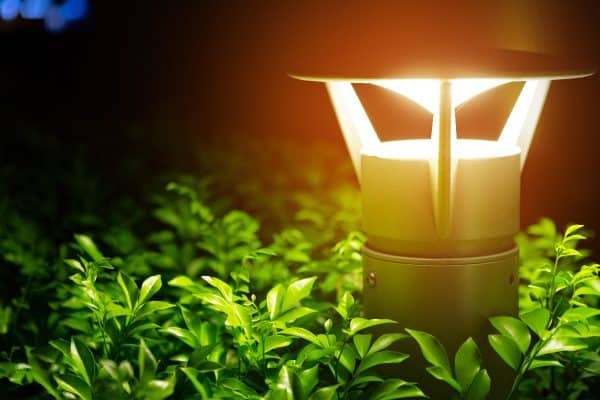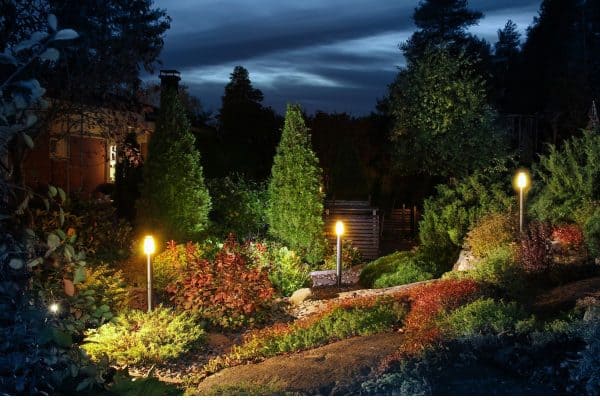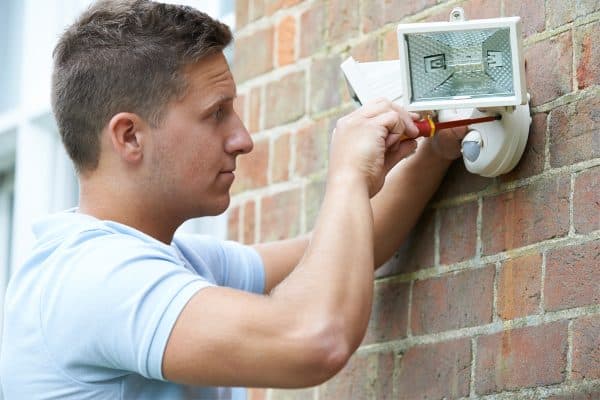Solar lights are a smart, cost-effective, and eco-friendly way to add lighting to your outdoor space. But when lightning strikes and the lights go out, will your solar lights be okay? We've done the research to answer that very question.
Solar lights will continue to work during a blackout. However, lightning can damage solar lights and solar panels. This is one of the major reasons why solar panels break down. Solar panels are made to resist a specific amount of electrical energy, and they are susceptible to damage or even destruction from voltage spikes that can occur during lightning strikes.
To provide you with more details to the answer above, we have taken further steps in this post to give you a breakdown of the factors involved. So stay put and keep reading!
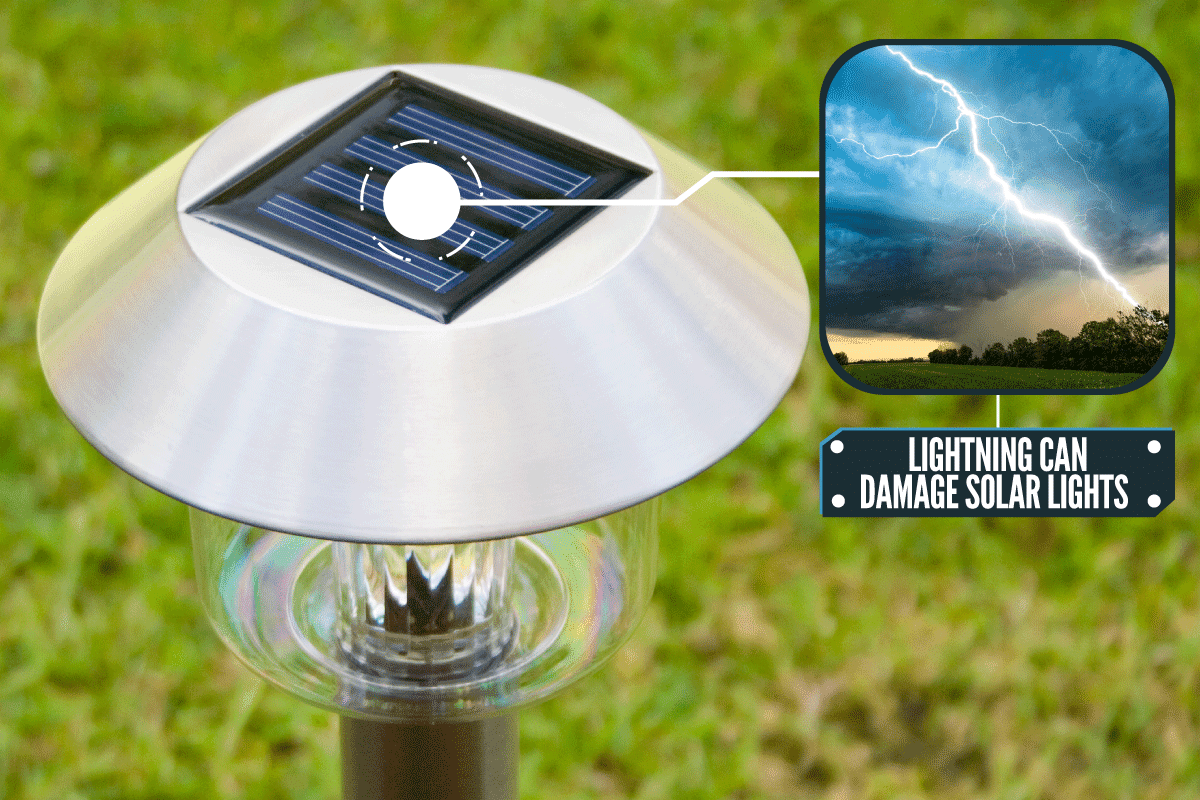
How Do Solar Lights Work?
Photovoltaic (PV) cells that are used in solar lighting, capture the sun's energy and produce an electrical current that flows through the solar panel. The battery receives electricity via wires first from a solar cell and transforms it into chemical energy to be used later.
A LED (light-emitting diode) light bulb is later powered by the battery using that energy. A semiconductor called a diode permits electrons to go back and forth between its two locations, generating electromagnetic energy in a form of light during the night.
LED technology is suitable for solar lighting systems since it produces light up to 90% more economically than conventional incandescent lights. LED bulbs don't burn out over time as a regular light bulb would; they merely get dimmer. They typically last longer than conventional bulbs.
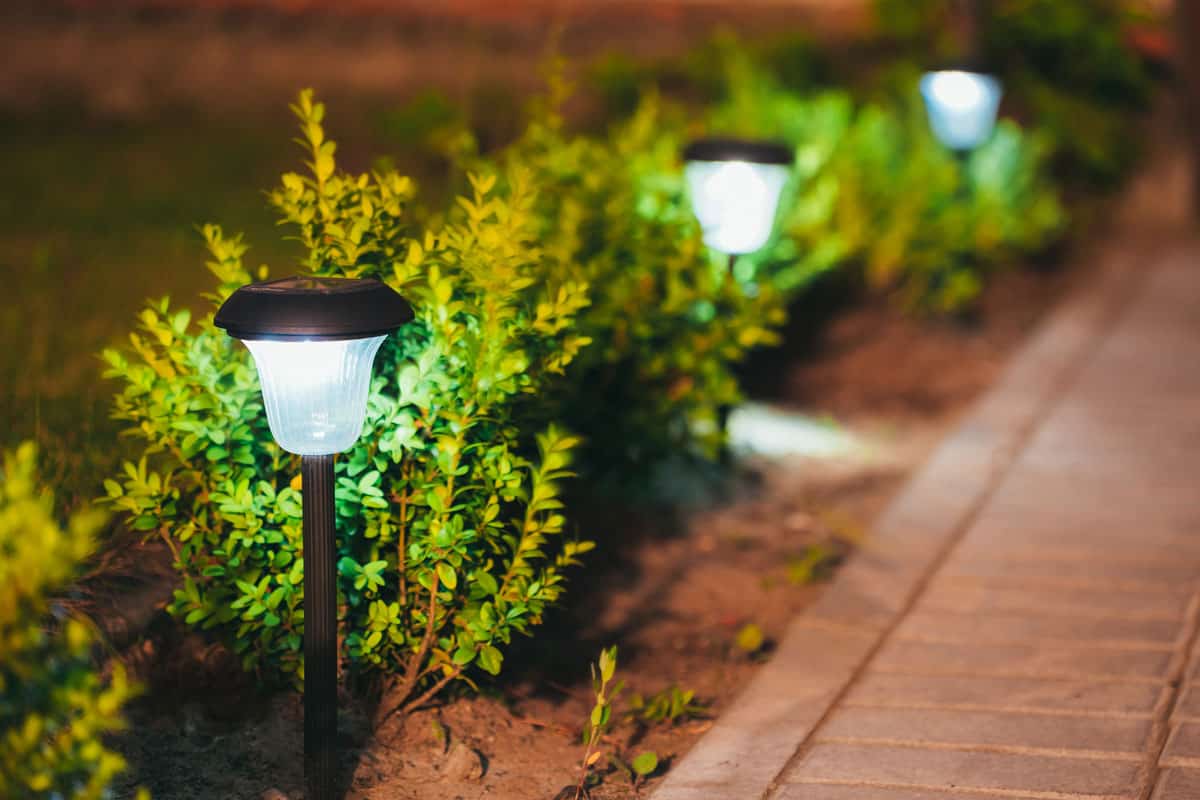
Do Solar Lights Work In Lightning?
Because solar lights are self-contained systems, they won't stop working due to a power outage in your home. This means that they are more functional in a lightning storm than many other outdoor lights.
However, lightning can damage the lights themselves. If your solar lights are struck by lightning, sensitive components can be damaged. Because of this, solar lights can also be vulnerable in a storm.
Does Lightning Affect Solar Panels?
Solar panels can be harmed by lightning since lightning is electricity. It possesses a lot of energy, which could affect the system or damage its constituent parts. If lightning strikes your panels directly, it can eventually reduce the longevity of your panels, even if it doesn't happen right away.
When lightning strikes a solar panel, current may run through the entire system and harm non-lightning-resistant parts like inverters or cables.
If you have solar panels put on your roof and lightning strikes, the electrical spike from the lightning strike may move down cables into electronics in those other parts of the home when they're not lightning shielded. One of the main reasons is the fact that many solar panels are inadequately grounded and protected.
Do Solar Panels Work in Lightning?
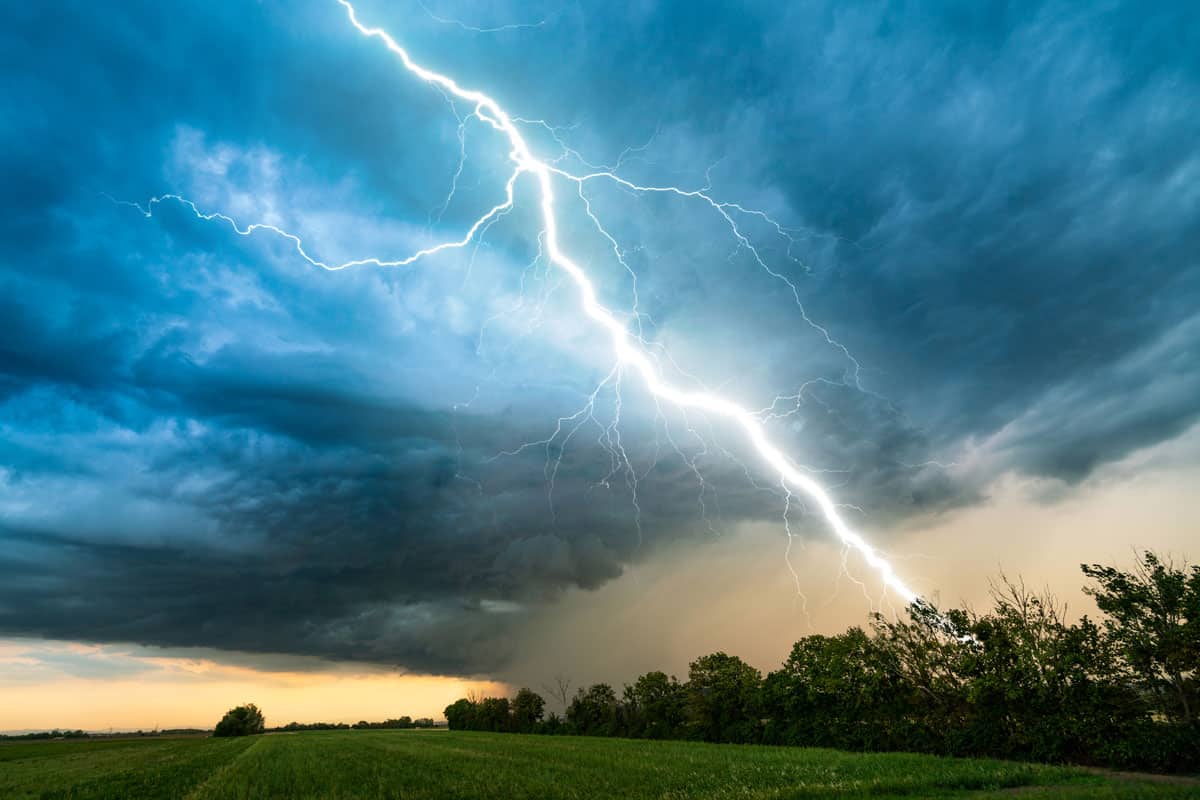
Solar panels will continue to work in a storm. However, electric devices like solar panels are susceptible to voltage surges brought on by lightning. To avoid surges, a trained installer will ensure that your system is correctly grounded.
Installing a lightning protection unit is a clever and simple modification if additional security is required. Another way to safeguard your solar street lights from significant lightning damage is to install a low resistant properties impedance grounding system.
A power-producing facility's safety step or touch voltage requirements are anticipated to be met by the installed grounding system.
After installing a stable grounding system, an overcurrent protection devices system should also be installed. Before installing a lightning protection system, risk analysis must be done to determine the risk parameters.
Does It Have to Be Dark For Solar Lights to Work?
Solar lights only come on at night. They can determine whether it is dark outside thanks to sophisticated light-sensitive sensors. The sensors are engaged and the primary LEDs are turned on when the outside light level falls below a specific level.
When the sun is shining brightly, the lights turn themselves off. The lights aren't strong enough to shine much during the day, but you could trick them into coming on during the day by blocking the light sensor.
Do Solar Lights Work on Dull Days?
As a result of the solar panel's charging components' high sensitivity to light density and luminous intensity. If there is enough light, the solar panel can start gathering energy and start the process of charging the outdoor solar lights.
Even though on dull or dim days with limited sunlight, the solar-powered lights will still charge. This is on account of their high level of photosensitivity.
Although clouds block a lot of sunlight, solar radiation still reaches the earth. The solar power system will therefore continue to charge even when there is cloud cover.
How Can You Protect Your Solar System From Lightning?
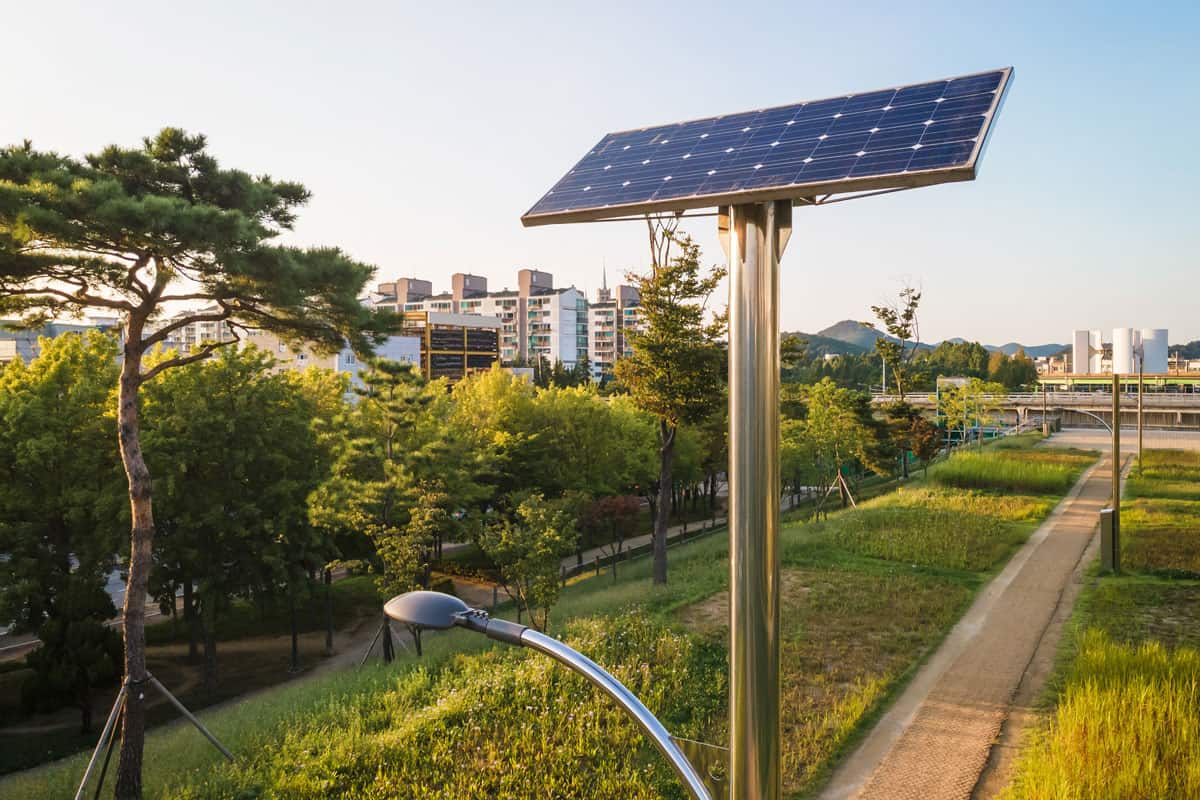
While lightning can harm solar panels, it is possible to reduce these risks and safeguard your solar energy investment by installing a lightning protection system. Here are some ways you can do that.
Grounding
As a precaution, a grounding system makes sure that lightning currents take the route of low resistance and avoid the sun.
To securely direct lightning voltage away from delicate components in your solar system, use grounding wires in conjunction with lightning arrestors. This kind of grounding system provides lightning currents with a safe path of least resistance.
Single Point Ground
One cannot overstate the value of a single-point protection basis. The normal practice calls for bonding every piece of equipment to a single useful earth ground.
It is conceivable that there will be a significant voltage distinction between the 2 grounds in a close hit if you have certain equipment on one ground and some equipment on another ground.
This implies that the device will be operating at various voltages, sometimes at levels high enough to cause arcing between components. The following is an exception: A panel array should have its own frame/mount ground if it is located and over 50 to 75 feet separated from the majority of the system.
Does Lightning Damage Solar Batteries?
A lightning strike, whether direct or indirect, can result in downtime and costs for locating and replacing damaged parts.
Direct hits, however uncommon, would damage and melt the equipment, including the inverters, panels, and possibly the rest of the system including the solar batteries. Indirect blows would damage PV panels, and conductors, and possibly spark dangerously, igniting combustible objects.
Do Solar Panels Need Lightning Arrestor?
Lightning (spike) arrestors can effectively bypass power cables and your equipment by absorbing voltage spikes brought on by lightning storms or by utility power that is not in compliance with specifications.
Any wire connection that links to any component of the system, including AC supply from an inverter, needs surge protectors at both ends. Arrestors are designed for a range of AC and DC voltages.
Use the arrestors that are best suited to your application. Where the risk of lightning is moderate, many system installers use Delta surge arrestors, which are cheap and provide some protection.
Why Are My Outdoor Solar Lights Not Working?
If your outdoor solar lights suddenly stop working, here are some common reasons why.
Not Enough Sunlight
Solar lights require sunlight to function, thus when they're not receiving enough of it they will not function.
For your solar light to function correctly, make sure that it is installed or put in an area where it receives enough sunshine to charge its battery. Another option is to try tilting the solar panel so that it receives more light.
Other Light Sources Nearby
The majority of solar lamps include an internal light sensor. When it grows dark, the light sensor recognizes it and switches on the lights accordingly.
Although this sensor will continue to detect it is day and not switch on the lights if the solar lights have some other light sources nearby. As a result, make sure you situate your solar lights away from other light sources if you wish to utilize them effectively.
Faulty Light Sensors
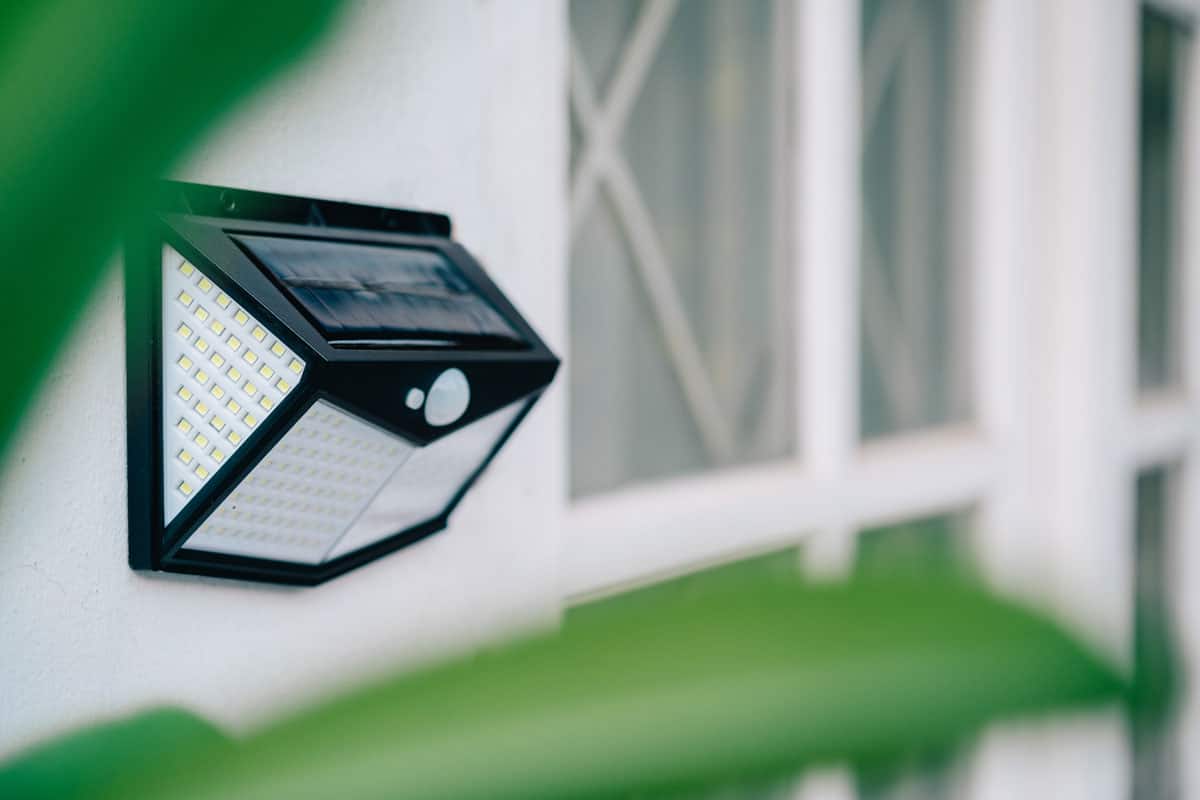
There is a chance that perhaps the sensors themselves are malfunctioning because most solar lights contain numerous sensors, including a light sensor and a motion sensor.
In this scenario, although there is movement outside of the solar light inside the dark, it won't switch on. As a result, you can think about wiping your light sensors to see if it helps.
Summary
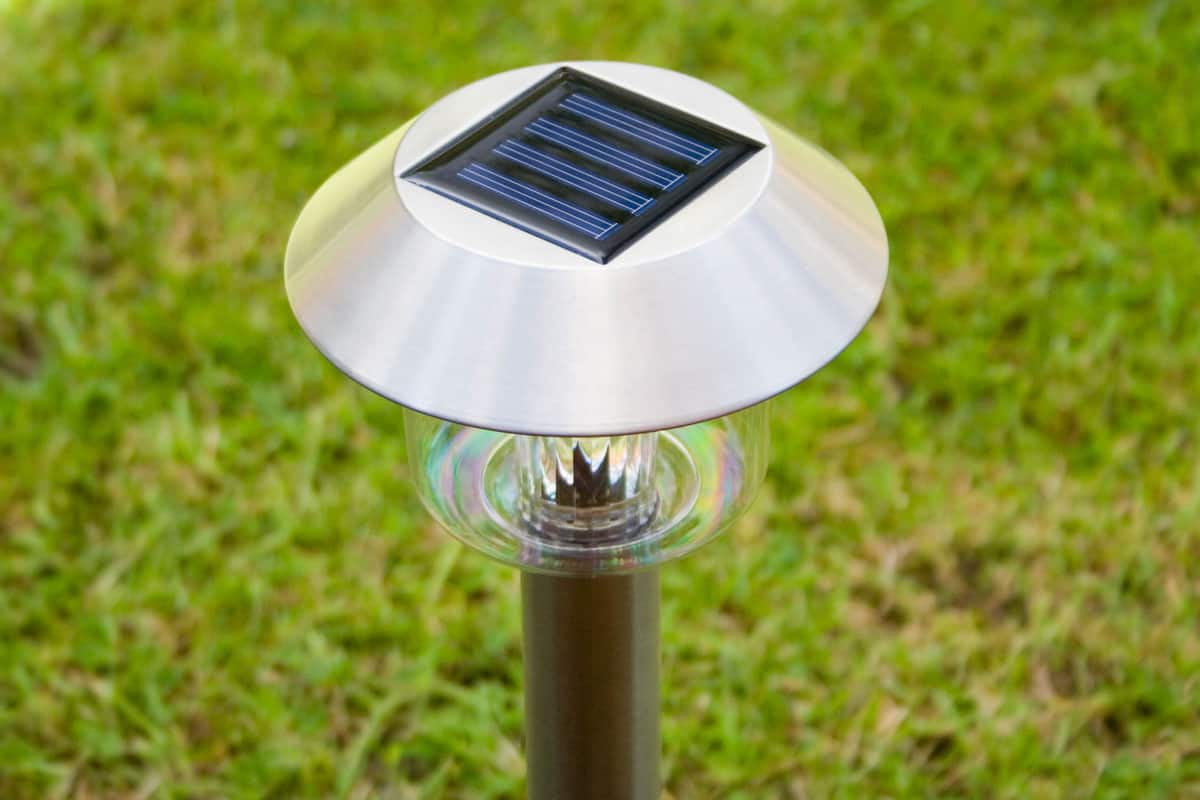
While solar lights will continue to function during a blackout, lightning can damage them. Now you know more about how lightning affects both solar lights and home solar panels.
We've also seen how to diagnose problems with solar lights and how to protect solar panels from lightning damage. With this information, you should be able to sail your solar way through the next storm.

